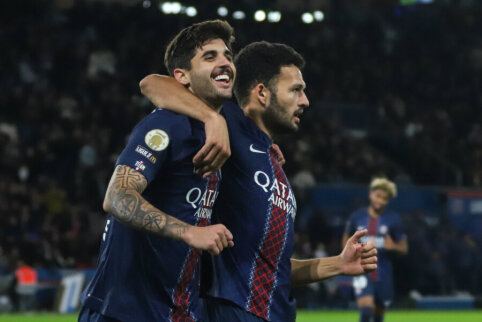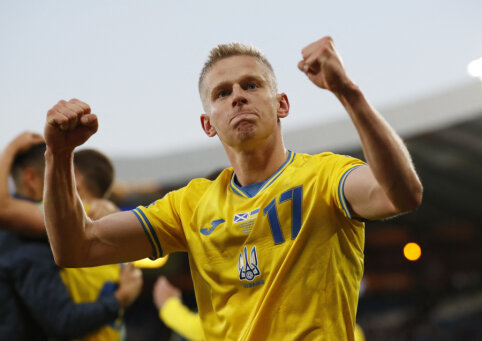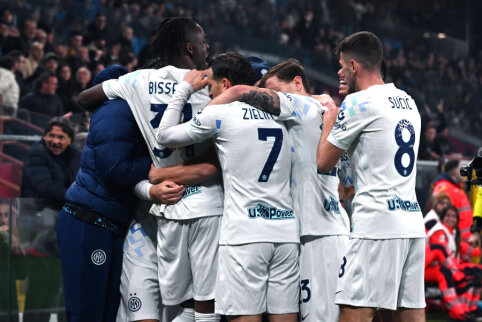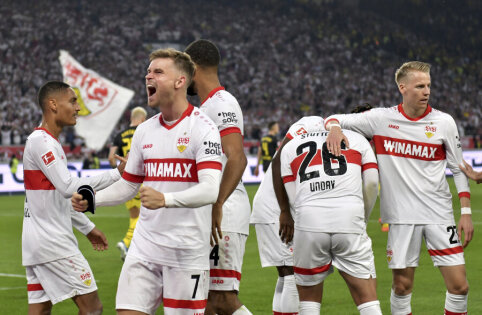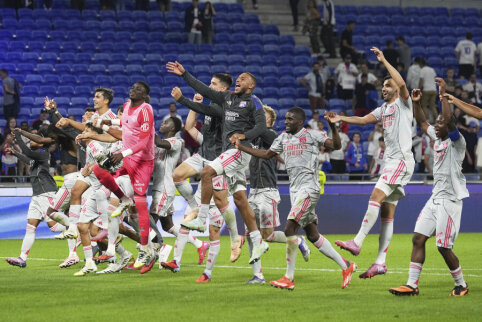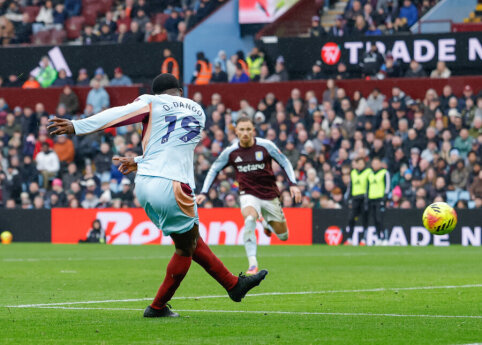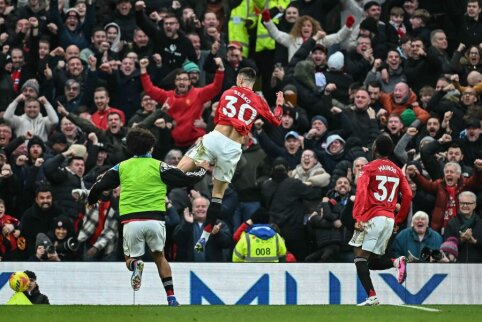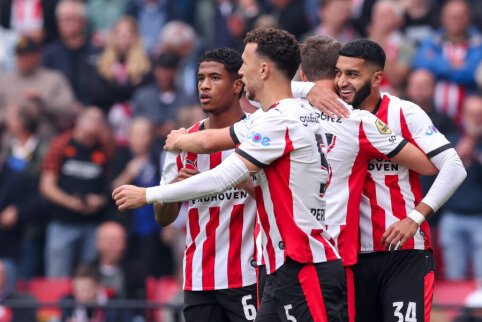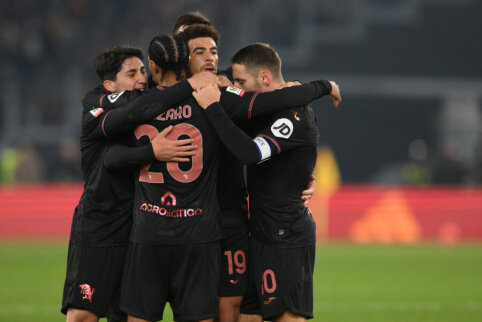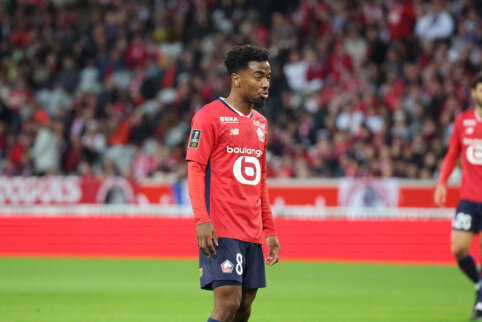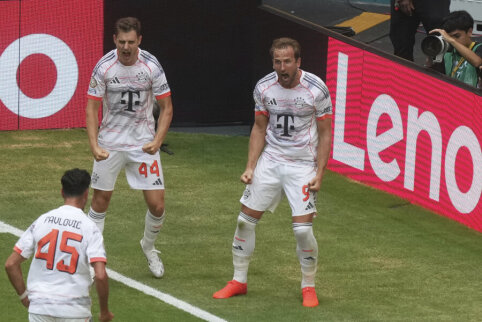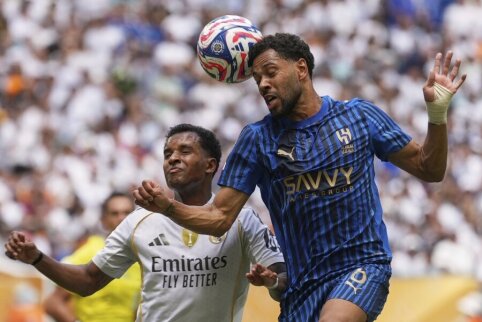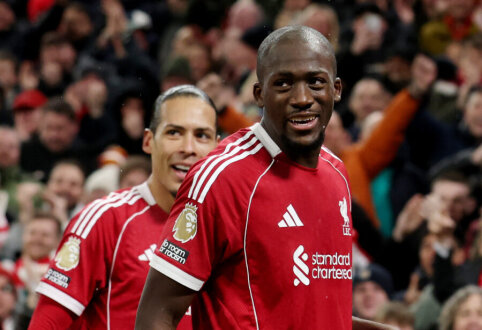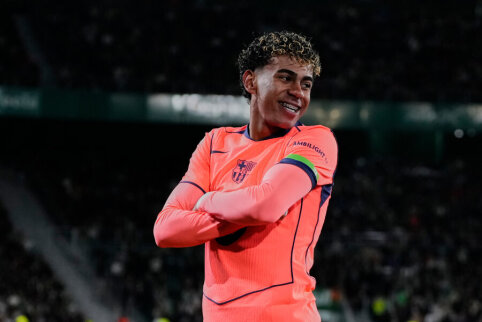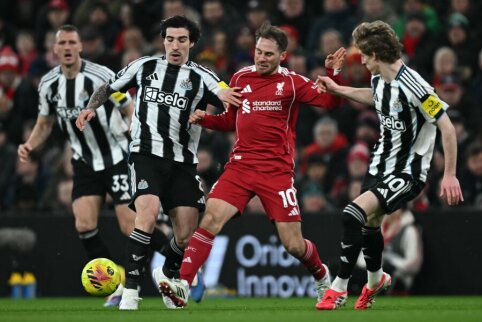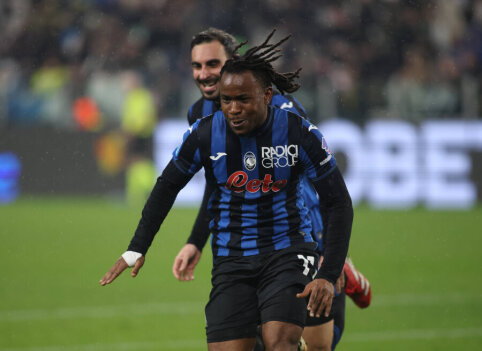 © EuroFootball.com
© EuroFootball.com
EuroFootball.com visitors favorite "Tribune" section - original article. In it, Valdas Dambrauskas, well known from articles about the "Manchester United" football school, looks at the observation of the most popular sport in the world from the coach's professional side and shares his advice.
"The article is somewhat different from the usual articles written and published in "Tribune," but I think it would be interesting and useful for most of your readers," Valdas said in his letter.
In Europe, a very interesting football season is coming to an end. In Lithuania, it's the off-season, but it won't last long, and football will invite everyone back to the stadiums. Discussions on past matches, players, goals, and coaches are ongoing on websites. When reading discussions or comments on Lithuanian websites, the lack of a more in-depth discussion about team tactics, strategy, players is very noticeable.
Most such comments are limited to "slogans": "Ronaldo is amazing", "Chelsea dominates", "Real is in control", and the like. In online pages in England, Italy, entirely different discussions are boiling. There, matches are analyzed very interestingly, professionally, and sometimes their quality in no way inferior to recognized football experts in newspapers or on television.
I hope that this article will give some fans more understanding of football, perhaps interest them in exploring the beloved game more or start various discussions. So how to watch football matches?
The first advice, at least at the beginning while lacking enough experience in match analysis, is to watch and focus on one team. After the start of the match, three basic football tactical principles come into play: what happens when our team controls the ball, what happens when the opponents control the ball, and what happens when ball possession transitions from one team to another (transition).
In the first 10-15 minutes, it would be most useful to review the general team play, player positioning on the field. During this time, the team's playing system should be identified. In recent years, the tactical preparation of teams has greatly expanded, but the most used systems remain the same: 4-4-2, 4-3-3, 5-3-2.
As the former FIFA coach Rinus Michels, the best of the last century, notes in his book "Team Building," all other systems (such as: 3-4-3, 4-5-1, 4-1-4-1, etc.) are just adaptations of the mentioned schemes.
After that, the game can be divided into parts:
• How is the game played when the team controls the ball?
Does the team use the shortest route to reach the opponents' goal (long passes)?
Does the team circulate the ball (performing several or a dozen consecutive passes waiting for a convenient moment to pass the ball forward)?
At what pace does the team circulate the ball?
How many players are involved in organizing the attack?
Does the team have a player whose specific task is to organize attacks (known in football terms as the "number 10," such as Zinedine Zidane, Juan Roman Riquelme)?
How does the team create moments to score goals?
Which players score goals?
• How is the game played when the opponents control the ball?
Does the entire team defend?
Where on the field does the team begin to defend (from the midfield line, etc. - usually, the field is divided into three thirds: attacking, midfield, and defensive, with defense starting in one of these zones)?
Does the team use zonal or man-to-man defense?
Does the team use offside trap?
Does the team defend aggressively?
• The moment when ball possession transitions from one team to another (transitional period): this moment is extremely important in modern football. According to the analysis of the English Football Association, the highest probability of scoring a goal is within the first 6 seconds after gaining possession of the ball, until the opponents have not organized their defense.
Where on the field is possession of the ball most often taken or lost?
Where is the first pass usually made after gaining possession of the ball (forward or backward)?
After gaining possession of the ball, does the player move forward himself, or is a pass made?
How do other players on the field react to regaining possession of the ball (activating space, being passive)?
Further, the team's game can be divided into even smaller parts, such as analyzing individual team segments (defenders, midfielders, forwards) and individual players.
In this article, we will not examine individual segments. If there is interest, we will do so in other articles. Let's briefly review the game of individual footballers.
Analysis of an individual player can be done considering their physical, technical, tactical, and psychological characteristics. Physical attributes include a player's height, weight, speed, strength, endurance.
Technical features include dribbling, passes, ball control, stopping the ball, shooting, heading, the ability to dribble past opponents, taking the ball.
Factors such as opponents' play, space provided on the field, the ability to adapt to weather conditions or a bad field, the ability to overcome fatigue in the closing stages of a match also affect player evaluation.
Individual player's tactical characteristics are assessed based on 4 main criteria:
• What does the player do when he has the ball (or can he recognize moments when to pass, when to push forward)?
• What does the player do when a teammate has the ball (moves forward, moves into free space)?
• How well can he anticipate, read the game when the opponents have the ball?
• Does the player quickly adapt, react when possession transitions from one team to another.
The main psychological traits would be aggressiveness, confidence, self-control, leadership qualities, attitudes towards teammates, opponents, referees.
It is understood that observing everything while watching matches on TV is very difficult. To better understand football, it is necessary to watch as many matches as possible, and no one will replace watching matches at the stadium. Watching high-class teams or players makes it harder to notice their mistakes because there are not many.
Regular match observation, analysis, discussion with friends or other fans will undoubtedly increase your understanding and expertise in this area. Good luck and enjoy good football!
